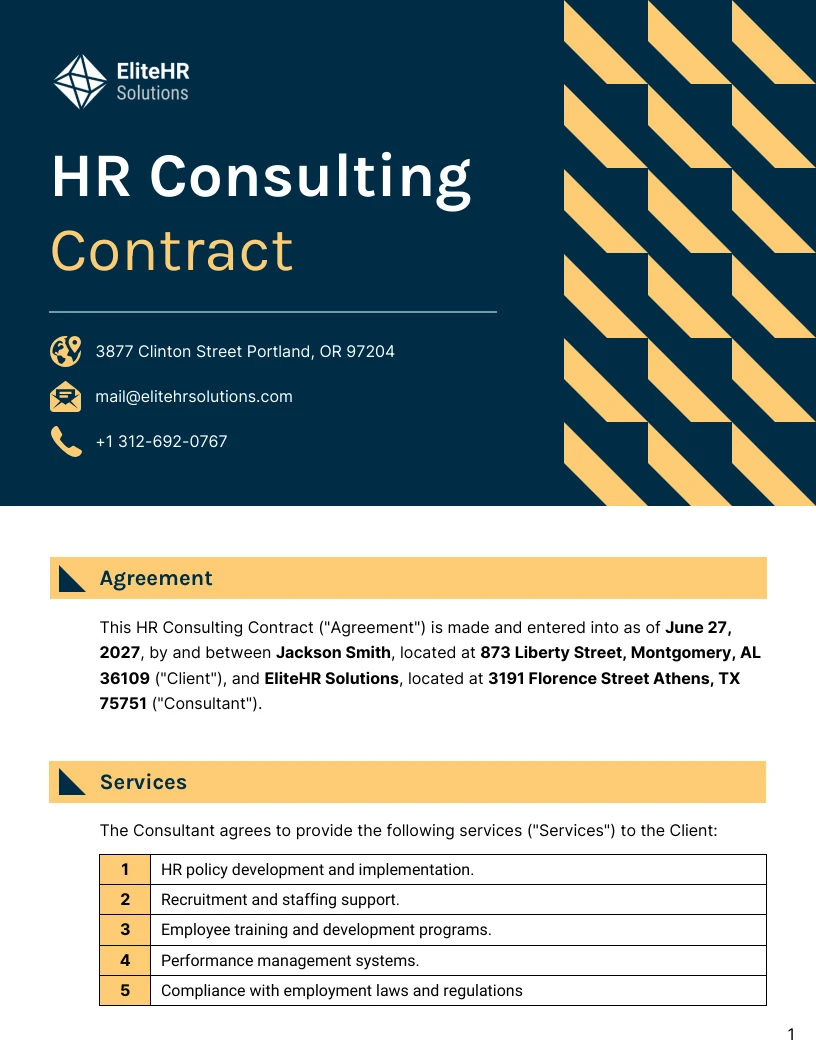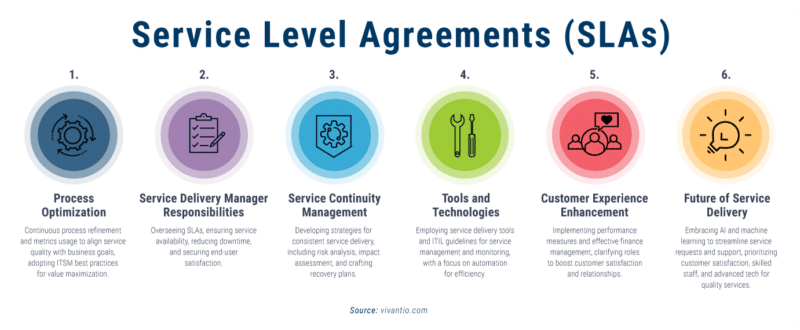Understanding Legal and Compliance Aspects in Your Outsourcing Journey
This post is a submission by Managed Services Partners. Managed Services Partners is an outsourcing firm with over six years of experience assisting businesses enhance operations and drive development.
Embarking on the contracting out journey is an undertaking that many businesses carry out to efficiencies, lower costs, and take advantage of specialized skill.

However, along with these prospective benefits come a host of legal and compliance complexities that must be thoroughly navigated to make sure the success and sustainability of outsourcing initiatives.
This extensive guide will check out crucial legal and compliance factors to consider, with a focus on data personal privacy laws, non-disclosure arrangements (NDAs), non-compete stipulations, and the crucial function of flexibility in today’s dynamic service environment.
The outsourcing landscape
Outsourcing is more than a method for offloading non-core tasks; it is a transformative approach that can improve a business’s versatility and competitiveness.
Whether it’s IT services, customer support, producing processes, or personnels, contracting out can use a substantial edge. Companies that effectively contract out can concentrate on core company operations, drive innovation, and access leading talent without the overhead expenses of full-time work.
However, this journey is not without its legal and compliance obstacles. Companies must bear in mind the complexities surrounding the transfer and management of information, the defense of copyright (IP), and the maintenance of regulatory compliance.
Given the international nature of outsourcing, businesses need to also think about cross-border legal ramifications, which may vary substantially depending upon the nation where the outsourcing provider runs.
Understanding these aspects is important in ensuring that outsourcing partnerships line up with a company’s tactical goals while alleviating prospective legal risks.
In most cases, organizations that disregard legal and compliance considerations face expensive conflicts, loss of sensitive information, or reputational damage that can take years to recuperate from.
Importance of legal factors to consider
Outsourcing naturally includes legal considerations that are necessary to protecting a business’s interests. At the forefront is the need to safeguard sensitive details. Companies should understand and stick to data personal privacy laws that govern the jurisdictions in which they run.
This is especially important as data breaches can result in extreme punitive damages and reputational damage.
Furthermore, copyright rights need to be plainly defined in outsourcing agreements to prevent unauthorized use or misappropriation of exclusive assets. If these rights are not properly developed, a service may lose control over crucial developments or private business procedures.
For companies running in highly controlled industries such as healthcare, finance, or legal services, compliance requirements are much more strict.
Complying with guidelines such as the General Data Protection Regulation (GDPR) in Europe or the Health Insurance Portability and Accountability Act (HIPAA) in the United States is necessary to preventing legal complications.
Non-Disclosure Agreements (NDAs) and non-compete provisions
When outsourcing, business frequently share proprietary info with external service providers.
To secure this valuable information, NDAs are used. These arrangements are created to avoid the unapproved dissemination of secret information, thereby securing the company’s competitive benefit.
NDAs need to be detailed and lawfully binding, clearly describing what makes up secret information and the responsibilities of both celebrations in handling delicate information. Businesses ought to also guarantee that their NDAs include provisions for legal recourse in case of breaches.
Similarly, non-compete provisions can be included to avoid service suppliers from making use of sensitive knowledge acquired during the contracting out partnership to benefit a rival. This is especially important when contracting out freelancers or companies that may have multiple clients in the same industry.
However, the enforceability of non-compete clauses can differ significantly depending on the jurisdiction. Some regions have strict regulations restricting the scope and duration of such stipulations.
Therefore, it’s crucial for business to speak with legal specialists with experience in the pertinent legal structures to prepare effective arrangements.
Contracts: Setting the structure
Contracts work as the blueprint for the outsourcing partnership, specifying roles, responsibilities, deliverables, and timelines. They also describe the legal and compliance expectations for both parties.

A well-structured agreement needs to address several crucial elements:
Scope of work: Clear and comprehensive descriptions of the services to be supplied, consisting of quality standards and performance metrics.
Data security: Specific clauses connected to information defense, information transfer treatments, and breach notification procedures to ensure adherence to personal privacy laws.
Copyright rights: Provisions that develop ownership of IP produced during the collaboration, and terms that protect pre-existing IP.
Termination stipulations: Terms that address the possible end of the outsourcing relationship, including notification durations and conditions under which termination can take place without charge.
Additionally, companies ought to consider implementing service-level arrangements (SLAs) to ensure accountability and efficiency tracking. SLAs define quantifiable criteria that the outsourcing provider need to satisfy, providing organizations with recourse if expectations are not fulfilled.
Engaging with provider
Consulting with prospective company throughout the early stages of the contracting out journey is a tactical move. This engagement enables business to gauge the company’s ability to fulfill legal and compliance requirements.

Thorough vetting processes, such as requesting references, examining past tasks, and examining compliance accreditations, can offer valuable insights into the provider’s reliability and adherence to market standards.
Businesses need to also assess the financial stability of potential outsourcing partners.

A service provider that faces monetary obstacles might not have the ability to preserve operations long-lasting, posing a threat to ongoing jobs. Conducting due diligence beforehand can prevent future disturbances.
The function of versatility in legal and compliance techniques
Adaptability is an important element of effective outsourcing, especially when it concerns browsing developing legal landscapes. Regulations and market conditions can change quickly, making it imperative for business to remain agile.
Building flexibility into agreements and developing processes for continuous compliance tracking can assist services adapt to new legal requirements and keep an one-upmanship.
For circumstances, if a business is outsourcing customer support operations to several nations, they need to guarantee compliance with different national laws relating to customer security and information privacy.
Regularly upgrading policies and contracts in response to legal changes can avoid legal pitfalls.
Real-world factors to consider and best practices
To ensure legal and compliance success in outsourcing, companies should adopt the following best practices:
Regular audits and assessments
Conduct regular audits and evaluations to guarantee that company stay certified with legal and regulative requirements. This proactive approach can help recognize possible gaps before they escalate into significant concerns.
Training and awareness
Educate staff members and outsourced teams on information security practices and legal commitments. This guarantees that everybody involved in the outsourcing journey understands the importance of compliance and the role they play in safeguarding details.
Collaboration and interaction
Foster a collaborative relationship with company. Open lines of communication can help address compliance issues without delay and facilitate joint analytical efforts.
Crisis management planning
Have contingency plans in location in case of security breaches, contract disputes, or supplier failures. A well-structured crisis management plan guarantees that businesses can quickly respond to difficulties without significant disruptions.
Legal compliance for outsourcing success
Understanding the legal and compliance aspects of outsourcing is essential for businesses looking to take advantage of external abilities while safeguarding their interests. By focusing on essential locations such as data personal privacy, NDAs, non-compete stipulations, intellectual property rights, and flexibility, business can effectively navigate the outsourcing landscape.
Successful contracting out depend upon a collaborative approach between the business and its provider. Building trust and preserving transparent communication can result in efficient problem-solving and a shared commitment to compliance.


